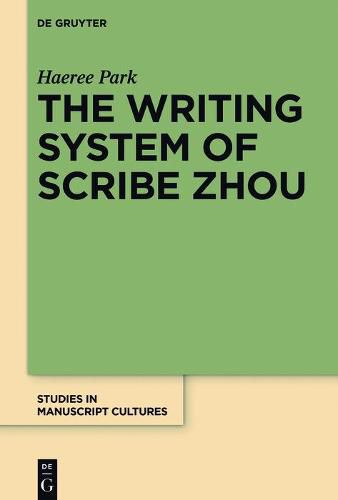Readings Newsletter
Become a Readings Member to make your shopping experience even easier.
Sign in or sign up for free!
You’re not far away from qualifying for FREE standard shipping within Australia
You’ve qualified for FREE standard shipping within Australia
The cart is loading…






This title is printed to order. This book may have been self-published. If so, we cannot guarantee the quality of the content. In the main most books will have gone through the editing process however some may not. We therefore suggest that you be aware of this before ordering this book. If in doubt check either the author or publisher’s details as we are unable to accept any returns unless they are faulty. Please contact us if you have any questions.
This book investigates the nature of regional variation in the early Chinese writing system through bamboo manuscripts and inscriptions dating from the late pre-imperial China (5th-3rd centuries BCE). Diachronic and synchronic comparisons of graphic details show that none of the well-recognized regional varieties developed independently from one another. Furthermore, differences in graphic components can be accounted for as alternations of graphs that are compatible in their semantic or phonetic values. The phonological systems underlying various regional orthographies unanimously point to a single coherent sound system with some mixture of dialect pronunciations. This strongly suggests that all the late pre-imperial regional scripts derived from a kind of orthographic meta-system based on one spoken standard language. This orthography and its phonological systems should reasonably be dated to ca. 9th century BCE, just about the time when the earliest known Chinese lexicography Book of Scribe Zhou (ca. 830 BCE) was written. The conclusions of this book have further implications on reading and understanding manuscript texts in general as well as on using them as data for linguistic studies.
$9.00 standard shipping within Australia
FREE standard shipping within Australia for orders over $100.00
Express & International shipping calculated at checkout
This title is printed to order. This book may have been self-published. If so, we cannot guarantee the quality of the content. In the main most books will have gone through the editing process however some may not. We therefore suggest that you be aware of this before ordering this book. If in doubt check either the author or publisher’s details as we are unable to accept any returns unless they are faulty. Please contact us if you have any questions.
This book investigates the nature of regional variation in the early Chinese writing system through bamboo manuscripts and inscriptions dating from the late pre-imperial China (5th-3rd centuries BCE). Diachronic and synchronic comparisons of graphic details show that none of the well-recognized regional varieties developed independently from one another. Furthermore, differences in graphic components can be accounted for as alternations of graphs that are compatible in their semantic or phonetic values. The phonological systems underlying various regional orthographies unanimously point to a single coherent sound system with some mixture of dialect pronunciations. This strongly suggests that all the late pre-imperial regional scripts derived from a kind of orthographic meta-system based on one spoken standard language. This orthography and its phonological systems should reasonably be dated to ca. 9th century BCE, just about the time when the earliest known Chinese lexicography Book of Scribe Zhou (ca. 830 BCE) was written. The conclusions of this book have further implications on reading and understanding manuscript texts in general as well as on using them as data for linguistic studies.